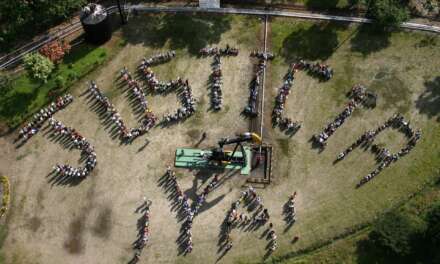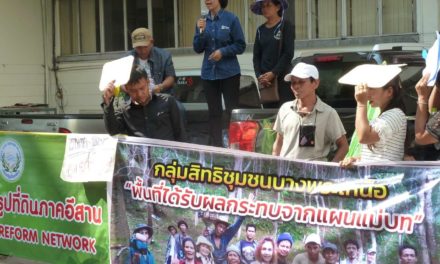29 September 2022. Rome, Italy.The dominant economic and food systems along with conflicts and wars are causing multiple crises evidenced by continuing, multi-layered food crises, catastrophic climate change, public health emergencies, and ever-rising levels of poverty and inequality, says a report launched today by the largest autonomous international space of civil society organisations and Indigenous Peoples working to eradicate food insecurity and malnutrition. Only if the crises are understood in a comprehensive and systemic way, can they be overcome. A profound, human rights-based and human rights-compliant transformation of the global food system and economic model is urgently needed.
Entitled Voices from the ground 2: transformative solutions to the global systemic food crises, the report synthesises the rich analysis and recommendations that emerged from a global popular consultation led by the Civil Society and Indigenous Peoples’ Mechanism (CSIPM) in 2022 on the grassroots impacts of COVID-19, conflicts, and crises on the right to food and food sovereignty. The consultation, which took place by means of an online questionnaire and 20 hours of video conferencing sessions, garnered 539 contributions from 63 countries across the globe, in Thai, Arabic, Urdu, Filipino, Russian, Portuguese, Spanish, French and English.
The main message that emerged from the consultations is that food sovereignty based on agroecology provides the most sustainable solution to these crises. It guarantees the right to healthy and culturally appropriate food produced through ecologically sound and sustainable methods, and the rights of people to define their own food and agriculture systems.
The report is published ahead of the 50th Plenary Session of the United Nations Committee on World Food Security (CFS), where governments will discuss public policies that can effectively transform global food systems. The CFS is the only existing inclusive multilateral forum in which the different dimensions of the global food crisis can be put together in a human rights framework.
According to the report, the CFS should provide guidance for governments on how to tackle the food crisis at country levels, guidelines for how funding should be directed and what international policy issues need to be addressed. The CFS could also establish a monitoring mechanism including voices from the ground and with the support of the High Level Panel of Experts (HLPE) that can foresee and help to prevent future crises.
Resources
- Download Voices from the ground 2: transformative solutions to the global systemic food crises (full report)
- Download the summary in English, Spanish and French
- Download the infographic on the scope and impact of CSIPM’s global popular consultation
- Watch the recording of the report’s launch event held on 29 September 2022
- Follow the online conversation with hashtag #VoicesFromTheGround
The report was prepared by the Civil Society and Indigenous Peoples’ Mechanism (CSIPM) for relations with the UN Committee on World Food Security (CFS) and includes voices of small-scale food producers, Indigenous Peoples, workers, landless peoples, urban food insecure, consumers, women and youth.
For media inquiries, contact [email protected] and [email protected]
Quotes
“The popular consultations resulted in short and long term demands from governments and the UN system. The short-term measures, needed to immediately address the crisis, must be coherent with the much-needed longer-term measures to transform our food systems.” – Hala Barakat, HIC international, CSIPM CC member
“We stress the need for coordinated and coherent policy guidance in the CFS to address current and prevent future crises.” – Hala Barakat, HIC international, CSIPM CC member
“Affected by structural inequalities introduced from the time of colonisation and reinforced by neoliberal policies, African countries suffer today from food import dependency and unsustainable levels of debt which, tied to the complex conditionalities of debt agreements, gravely affect the governments’ abilities to put effective social protection and people-centred development measures in place.” – Sefu Sanni, World March of Women, CSIPM Youth Working Group coordinator
“Africa is a prime victim of existing global inequalities: a subordinated economic power on the world scene, with limited voice in political decision-making directly affecting the continent and its nations and extremely uneven distribution of costs and benefits arising from exploitation of its natural resources.” – Sefu Sanni, World March of Women, CSIPM Youth Working Group coordinator
Contrary to what many policy makers believe, the recurring mess of intersecting crises that the world has been subjected to cannot be addressed through so-called ‘free trade,’ global supply chains and increasing productivity through industrial agriculture. We urgently need a paradigm shift where corporations are not allowed to dominate economic governance, and where policy making and crisis responses are driven by the actual needs and experiences of people, and where human rights and respect for nature are prioritised over profit making. – Shalmali Guttal, Focus on the Global South, CSIPM Global Food Governance Working Group member and co-author of the report.
Find us online:

![[CSIPM] Civil society and Indigenous Peoples’ organisations demand a globally coordinated policy response to tackle food crisis](https://focusweb.org/wp-content/uploads/2022/09/Front-cover-of-the-report-1259x640.png)








